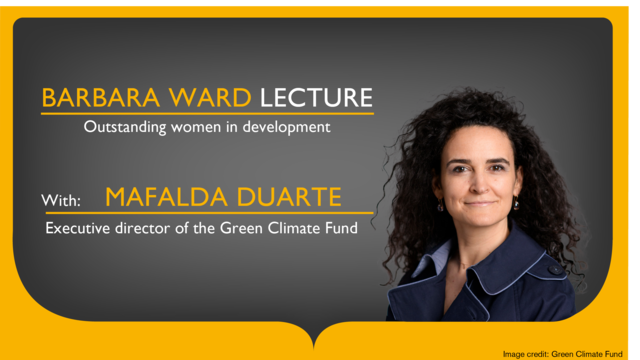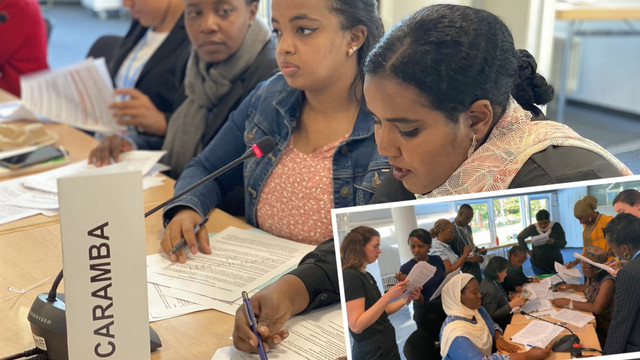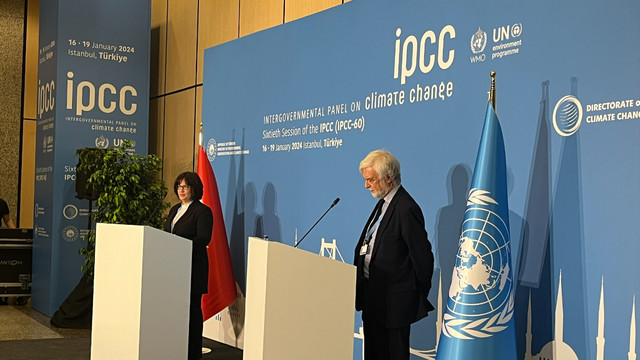An American predicament that threatens the Green Climate Fund
Millions of people around the world, including climate change negotiators, follow the domestic political scene in the US, and most of them have by now realized the current Administration’s predicament of facing an antagonistic Congress that will essentially block everything they try to do, domestically, and certainly internationally.

In the context of the multilateral climate change negotiations, this global realization has slowly, but inexorably led to the conclusion that for the foreseeable future, it would be vain to expect from the US either legally binding mitigation commitments or a significant financial contribution to the new multilateral Green Climate Fund, a fund meant to help poor countries to adapt to climate change and to develop low-carbon economies.
However, the fiasco at the recent final meeting of the Transitional Committee in Cape Town, South Africa, which was meant to agree on a design for this Fund, has given the impression that the US Administration is not of the same opinion. At that final meeting, the US found itself blocking consensus (alongside the Saudis) because they felt that the proposed design was too closely linked to the UN Framework Convention on Climate Change (UNFCCC), which they know would be unacceptable on Capitol Hill.
Unfortunately, a link with the UN seems not the only taboo on Capitol Hill. ‘Climate change’ − or rather ‘global warming’, in local parlance − and ‘multilateral’ (in the sense of sending taxpayers money abroad) are regarded as equally objectionable. So, short of turning the Green Climate Fund into a domestic fund for non-climate purposes, Congress is not going to appropriate funding for it in the foreseeable future.
This must no doubt be painful for the present Administration, who we believe would very much wish to play a more positive role in these negotiations. To find themselves in the same shoes as their predecessors − isolated as spoilers together with the Saudis − is not something they are likely to enjoy. Having got into power with the slogan “Yes, we can!”, it must be difficult to admit to oneself that one can’t. But it is crucial for the future of the climate change regime that they do, and not impede the rest of the world’s progress with the aim to get a deal that would pass on the Hill, no matter how well-intended that aim might be.
In the Cape Town closing session the sentiments about the proposed design ranged from moderately happy to quite unhappy, but everyone apart from the two aforementioned exceptions was willing – for the common good – to proceed and submit the design as a consensus document to the Conference of Parties to the UNFCCC for approval at the December Session in Durban. As this was not possible, it is now highly likely that the negotiations on design will be re-opened in Durban, with a very high risk of losing everyone else in the process, which would put off the setting up of the Green Climate Fund by at least a year, if not considerably longer.
In that case, the real victims of the American predicament would be the countries that are most vulnerable to the impacts of climate change, such as the Least Developed Countries, the Small Island Developing States and much of Africa. Their only hope is that at Durban, the proposed design of the Green Climate Fund – as imperfect as it may be – will be approved by consensus without re-opening the negotiations.
This guest blog was written by Pa Ousman Jarju of the Gambia, Chair of the Least Developed Countries Group (LDC), Fred Onduri Machulu, Former Chair of the LDC Expert Group at the UNFCCC, Munjurul H. Khan, a member of the Bangladesh government delegation to the UNFCCC, Carol Mwape LDC Transitional Committee member from Zambia and LDC group finance coordinator and Benito Müller, Director, Energy & Climate change, Oxford Institute for Energy Studies.They authored the blog in their personal capacity.



